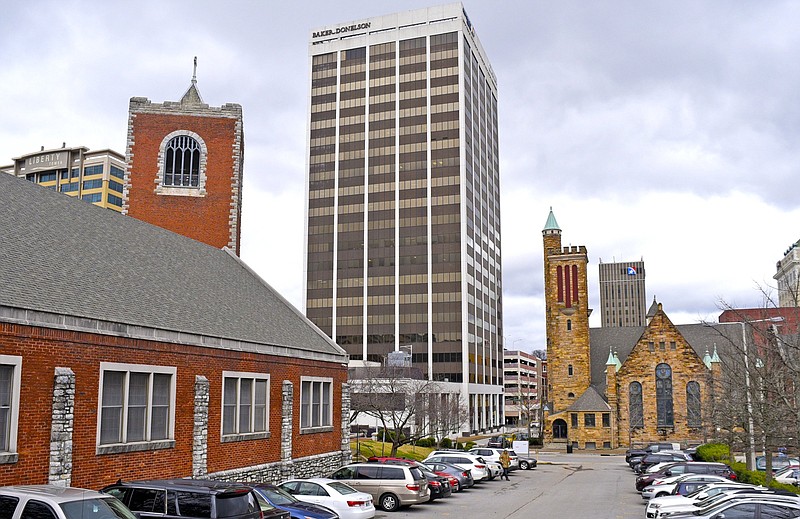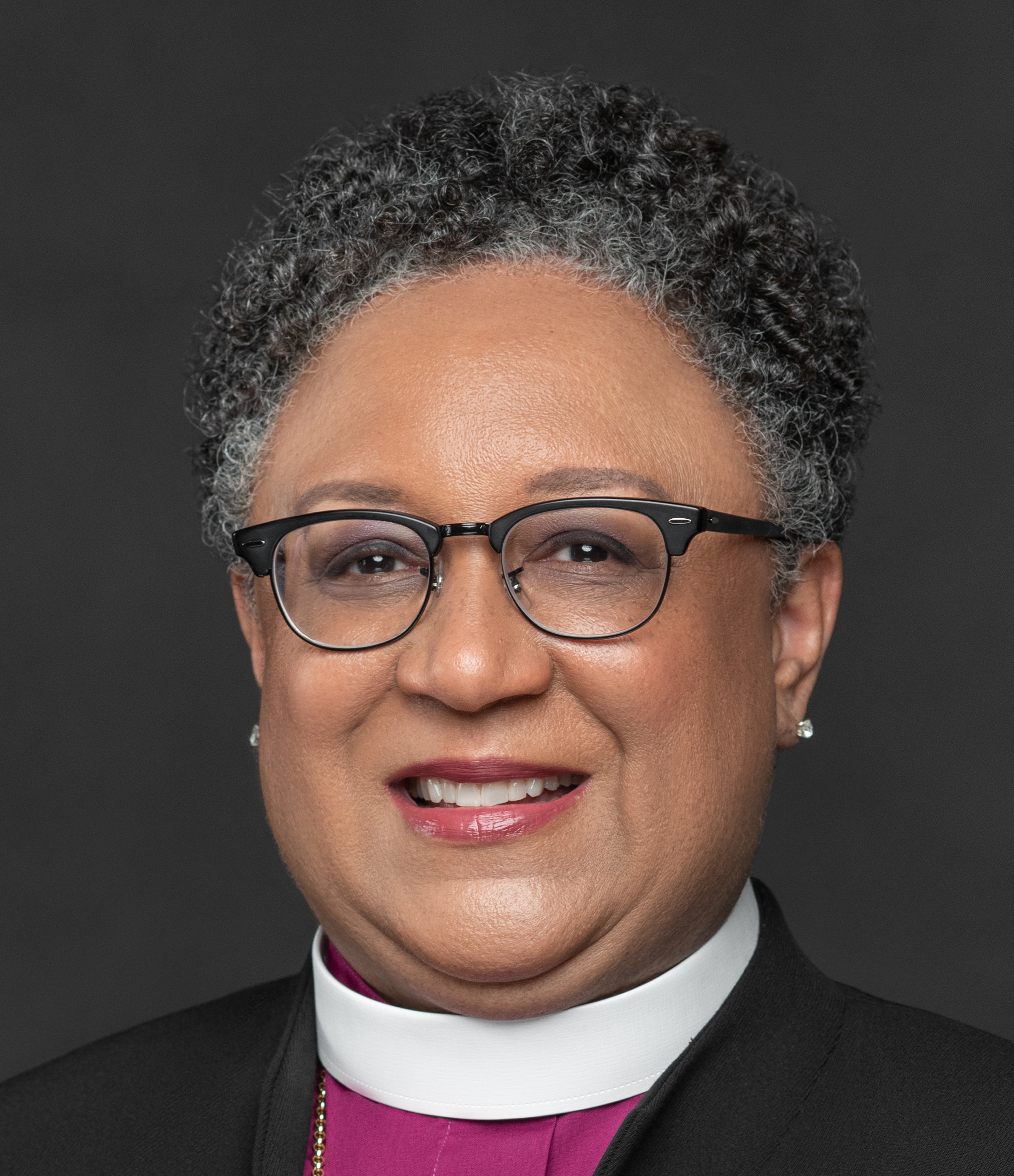Editor's note: Every Wednesday, from March 4 until April 1, St. Paul's Episcopal Church will host religious leaders for its annual Thorne Sparkman lecture series. Ahead of each lecture, the Times Free Press offers a conversation with the speaker as part of the weekly "Religion: Got Questions?" series.
The Rt. Rev. Phoebe Roaf is the bishop of the Episcopal Diocese of West Tennessee, a position she began in November 2019. Roaf's election made her the first woman and the first African American to lead the diocese. Before joining the clergy, Roaf earned a law degree from the University of Arkansas at Little Rock, then clerked for two years for the U.S Court of Appeals for the Fifth Circuit in New Orleans.
This conversation has been edited for clarity and length.
What will your lecture on Wednesday be about? How did you choose that topic?
"The focus of the series is about building peace. I decided that before I can focus on peace outside of myself, it begins with me being clear about being peaceful within myself. For example, externally, things can be peaceful but if, internally, I've got some chaos or disunity or unsettledness, then I'm not going to be a peaceful presence wherever I go. So my talk is going to focus on some of the practices and the things that I have done to be centered within myself, so that regardless of the external circumstances of my life, I can have a sense of calm."
And what are some of those practices you've turned to that you might advise others to try?
"The major spiritual practices and disciplines from millennia. They're tried-and-true methods, which include, No. 1, just being quiet. External quiet is often a way that people can draw into hearing God, the Creator, the higher power. So not having as many distractions, and that's tough in our day of being constantly on at all times. But also the reading of Holy Scripture and also other spiritual books.
I've also found it very helpful to have companions on my journey. That would include meeting regularly with a spiritual director, who is someone who walks with you in your relationship with God. As a Christian, that would be a person who is helping me to discern how Christ is moving in my life. And, when I'm having periods of drought or where I'm not feeling a sense of Christ's presence, to talk through my prayer practices and maybe to give me suggestions.
I would also say therapy has been an important part of that. All of us have inherited things from our families. Many of those things are wonderful. And some of those things are, quite frankly, not helpful."
Before becoming ordained you had a varied career, including a law degree from the University of Arkansas at Little Rock and working for the U.S. Court of Appeals for the Fifth Circuit in New Orleans, before feeling a call to the ministry. How does that experience help you with lay people who may feel a disconnect between their faith and their job?
"When I served as a parish priest for 11 years before I was elected to be the bishop of West Tennessee, whenever I would ask people to serve on committees or run for the vestry, which is the title for our governing board, I really understood what it was like to work full time and be actively engaged in the church. I was a very active lay woman in the Episcopal Church for years before I was ordained. I went to seminary in my 40s.
I think it helped me to have an appreciation of exactly what I was asking. And because people knew my background and they knew that I had actually been out in the real world for decades before going to seminary, I think they trusted my insight and my judgments on certain things, because I was someone who would actually balance that being in the secular world for my vocation but also having a strong spiritual core or foundation."
In your public statements when you were nominated for the bishop position you said you've long broken barriers and been a bridge builder. What do you see as the biggest barrier or the necessary bridge for the Episcopal Church going forward?
"The whole culture has just changed. The church needs to not be afraid of the changes that have taken place, to not be afraid of the computers that we carry in our pockets and this whole virtual world of internet and cell phones, but instead to see that as perhaps the new mission field.
In an earlier generation, we would have sent missionaries to Haiti or the Dominican Republic. We need to figure out how the church can play more of a role to be a positive part of the conversation on social media, which can so quickly devolve into something that is hateful. How might the church bring up the level of discourse? The only way that's going to happen is if the church is actually engaged at that level. It's a very creative and stimulating time, as I consider the new mission fields which go way beyond the traditional bricks and mortar mission fields of an earlier generation."
A lot of the articles about you emphasized how when you were voted bishop you became the first woman and the first African American bishop in the diocese's history. Those are firsts and a legacy you didn't necessarily choose, so I'm wondering how you think about your legacy as bishop and what other "firsts" you would like to be remembered by?
"I will be very grateful when there are no more firsts, when every single person of every background and every walk of life has their gifts and talents fully appreciated and lifted up and utilized. Being the first, I'm very humbled and proud, but it's not something that I want to lift up just because of that.
I think at the end of the day, I would like to be remembered as a woman who was faithful to the call of Jesus Christ and who did her best to spread the good news of Christ in some way in West Tennessee. Someone who transformed lives and hearts. I can speak from personal experience that my relationship with God has transformed my life in powerful ways. And I want other people to have that same experience in their journey with God. So if I'm able to do that, then that's more than enough for me to be remembered for."
Roaf will speak at St. Paul's at 305 W. Seventh St. at 6:45 p.m. on March 4. To register for the event, visit lentenschool.org.
Contact Wyatt Massey at wmassey@timesfreepress.com or 423-757-6249. Follow him on Twitter @news4mass.

